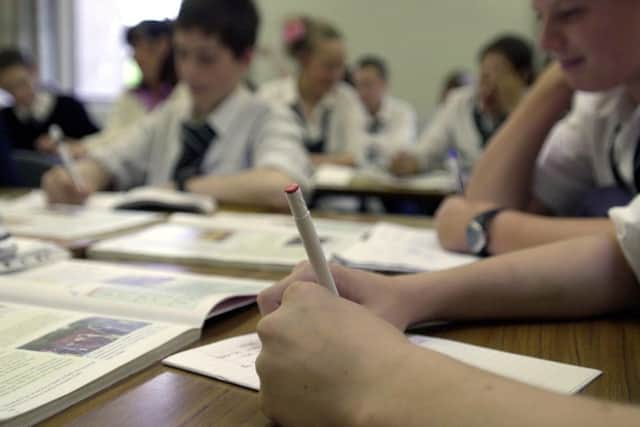Young people are looking to develop employability skills from an early age - Oliver Watkins
In fact, at a time like this when many companies are focused not just on survival, but on medium and long-term economic growth, factoring the future workforce into your current plans could make the difference in helping your company to thrive.
Aside from the obvious current economic barriers and difficulties businesses are facing up and down the country, finding and retaining skilled staff are among the top challenges for organisations.
Advertisement
Hide AdAdvertisement
Hide AdThe government has sought to address this through huge investment in apprenticeships and skills-based qualifications for young adults and this has made a huge difference to many employers.


But there is still a long way to go, especially as we continue to recover from Covid’s impact. As we settle into the new year, perhaps now is the time to make small tweaks and invest in those that will be your employees in the next five to ten years.
As the director of the Sixth Form at Horsforth, I work closely with many talented young students who will be our future leaders and creators and we work hard to ensure they are given every opportunity to explore their future choices. We also see the impact small interactions and events can have on their long-term future.
So, if you need some inspiration on how you can make a difference, perhaps consider the following.
Advertisement
Hide AdAdvertisement
Hide AdAttend a careers fair. Most schools host them and even if not on school premises, all students are likely to attend one during their school years. Contacting a careers advisor or a nearby school is a good starting point for this.
Start your employer programmes from around 12 years old. This could look like a school talk to a group of Year 8s and 9s, or offering a tour around your premises. For slightly older students, perhaps you could have an annual programme that goes beyond work experience and includes mentoring and mock interviews for example. And depending on the size of your organisation you could organise a company careers day.
You could offer a session to complement a school’s enrichment programme. Many schools have them now and they provide excellent opportunities for students to develop skills to help them in employment.
At Horsforth School we offer more than 90 activities including the school newspaper, photography, first aid, as well as food and debating clubs. Students also have the opportunity to go on national and international educational trips and last year six Year 12 students went to Kyoto, Japan, to showcase their projects at the ‘Japan Super Science Fair 2022’.
Advertisement
Hide AdAdvertisement
Hide AdApparently, only 34 per cent of young people understand what skills employers are looking for, but if more employers implemented the tips above, this figure would increase.
At our upcoming sixth form open evening, a careers advisor will be available to speak to prospective sixth formers, because coupled with our extremely strong academic record, we are passionate about investing in our employees and business owners of the future, thus investing in our region’s future economic growth.
Oliver Watkins is the director of The Sixth Form at Horsforth, which has an open evening on January 19.